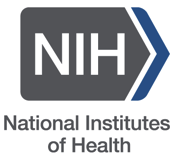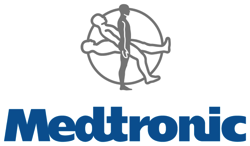|

Richard Bendis and BioHealth Innovation were among the small businesses and individuals honored by the US Small Business Administration at the 2014 Tibbetts awards. Winners of the award have been critical in supporting the SBIR/STTR program in many different ways and are at the forefront of driving innovation. Read the full PR Newswire press release here.
The BHI SBIR/STTR Federal Funding Assistance Program offers biohealth companies support in preparing applications for federal funding inclusive of SBIRs, STTRs, and other federal government awards. Companies submit their federal funding concepts and receive pre-proposal feedback to help troubleshoot and strengthen your application. Further support from professional consultants and service providers is available to assist in improving your application.
For more information on the program, contact Ethan Byler.
back to top 

Governor Martin O’Malley and The Maryland Department of Business and Economic Development announced today that Cellphire, a Rockville biotechnology company, has received a $1 million investment through the State’s InvestMaryland program. Cellphire is developing stabilized cellular products, including freeze-dried platelets that can be stored for years, for use in a range of advanced therapeutic and diagnostic applications.
“Supporting entrepreneurs and innovators like those at Cellphire is a central piece of Maryland’s broad support of the startups and small businesses that move our Innovation Economy forward and keep our State competitive in the 21st Century,” said Governor O’Malley. “Maryland is a center of healing and discovery. The technology being developed by Cellphire has the potential to improve care and save lives around the globe.”
back to top 

Cambridge UK medical technology heavyweights are in the front line of a battle to speed diagnosis and potential treatment of dementias.
MedImmune, IXICO, Johnson & Johnson Innovation (now with a Babraham base) and the University of Cambridge are in a consortium created by The Medical Research Council in the form of the UK Dementias Research Platform (UKDP) – a £16 million public-private partnership set up to speed up research into dementias.
back to top 

Qiagen, a Netherlands based holdings company announced that its artus CMV RGQ MDx Kit for human cytomegalovirus (CMV) has been approved by the US Food and Drug Administration (US FDA) under a full premarket approval (PMA). The test is the only FDA-approved PCR-based assay optimised for low- to mid-throughput testing of CMV. With a turn-around time of approximately three hours, the assay provides faster results than other PMA approved tests. artus CMV RGQ MDx runs on Qiagen’s Rotor-Gene Q MDx real-time PCR platform, which was cleared by the FDA in 2012 and is a member of the QIAsymphony modular family of automated instruments.
“We are very pleased to add yet another FDA approved diagnostic kit to our menu of FDA approved or cleared content for a core element of our flagship QIAsymphony modular family of automated instruments. This flexible platform is driving the dissemination of molecular diagnostics by delivering efficient, reliable workflows in low- to mid-throughput settings, which represent the largest market opportunity in terms of placements,” said Peer M. Schatz, chief executive officer of Qiagen. “Our artus CMV assay is the fastest test approved for quantifying CMV viral loads in organ transplant patients. In addition to helping save lives with its clinically proven usefulness, the FDA-approved artus test creates economic value by reducing the time and money many labs and hospitals currently must spend validating lab-developed CMV tests and analyte-specific reagents. More than one million CMV tests are performed on US transplant patients each year and we believe the artus CMV kit will provide significant value for laboratories, patients and the healthcare system.”
back to top 

When Mike Oberst walks through the doors of MedImmune in Gaithersburg each day, he resumes his important work on developing a newer, promising type of cancer treatment.
The scientist has focused his attention on immunotherapy as a way to eliminate cancer cells in patients. The treatment aims to harness the power of one’s immune system to fight cancer.
back to top 

Tuesday, July 8, 2014 6:00 PM - Johns Hopkins University Montgomery County Campus, Rockville, MD
Guest Speakers:
GAUTAM GULATI, MD, MBA, MPH
Dr. Gulati is the Chief Medical Officer and Head of Product Innovation for Physicians Interactive Holdings, where he leads a world-class team to ideate, design, build, and deploy disruptive solutions for a health audience. In addition to his executive role, he serves as an Adjunct Professor of “Medical Innovation and Entrepreneurship” at Johns Hopkins University Carey Business School, sits on numerous company boards, and speaks at a variety of events around the world.
Over his 20+ year career, Dr. Gulati has been combining his diverse experiences, creative juices, and passionate voice to help take on a bigger challenge…to treat our troubled health system. He has earned an impeccable reputation for his ability to transform organizations – both big and small - to meet the future innovative demands of the health industry. Along this journey, he has been dubbed both a "health hooligan" and "physician artist", encapsulating the creative characteristics that allow him to meld his various vantage points as a clinician, executive, designer, professor, advisor, entrepreneur, speaker, and technology advocate.
PAUL FEARIS, CEO Clinvue
Mr. Fearis obtained Masters Degrees in both mechanical engineering and industrial design and as a consequence has been involved in product development throughout his career. An entrepreneur at heart, with his partners, Mr. Fearis formed Clinvue, a company which marries his passion for innovation with his love of understanding people and solving worthwhile problems.
Peter Davis, JD
Mr. Davis is a partner in Whiteford, Taylor & Preston’s Technology and Intellectual Property Practice, located in Baltimore, Maryland. He is a former U.S. Patent Examiner, and for the last 23 years he has balanced his time between patent prosecution, patent litigation, and strategic patent counseling for many of the world’s best-known companies. He has worked in virtually all areas of technology, including biotechnology, pharmaceuticals, medical devices, electronic devices, software, light and heavy machinery, and automotive. He can speak the languages of both the inventor and the layman, translating inventions into terms that patent examiners, judges and juries find compelling. Mr. Davis received his bachelor’s degree from Cornell University (1987) and his JD from Catholic University (1993).
back to top 

The FLC invites you to submit images of your lab’s work for its 2015 planner! Why keep all of that hard work to yourself? Share it with the more than 10,000 planner recipients throughout the FLC community, including members of Congress, scientists, tech transfer professionals, and members of academia and industry. The FLC planner features an array of images displaying the innovative research and development that occur daily in our nation’s federal labs.
To submit images of your lab’s work, carefully read the submission criteria below. You also may want to coordinate your submission with, or through, your agency’s FLC representative or public affairs office.
back to top 

Over the last two and a half years the National Science Foundation I-Corps has taught over 300 teams of scientists how to commercialize their technology and how to fail less, increasing their odds for commercial success.
After seeing the process work so well for scientists and engineers in the NSF, we hypothesized that we could increase productivity and stave the capital flight by helping Life Sciences startups build their companies more efficiently.
back to top 

A collaboration between the National Science Foundation (NSF) and the National Institutes of Health will give NIH-funded researchers training to help them evaluate their scientific discoveries for commercial potential, with the aim of accelerating biomedical innovations into applied health technologies.
I-Corps at NIH is a pilot of the NSF Innovation Corps (I-Corps) program specially tailored for biomedical research. Academic researchers and entrepreneurs with Small Business Innovation Research and Small Business Technology Transfer (SBIR/STTR) Phase I awards – awards that establish feasibility of proof of concept for commercializable technology – from participating NIH institutes will be eligible to apply to I-Corps at NIH. NIH will begin outreach to the small business research community with a June 25 program briefing at the 2014 BIO International Convention in San Diego, and a webinar on July 2.
back to top 

We are delighted to announce a new collaboration between the National Institutes of Health (NIH) and the National Science Foundation (NSF) to empower entrepreneurial scientists and advance the Lab-to-Market priorities set forth in the President’s Management Agenda. The Federal government invests over $130 billion on research and development (R&D) each year, and the President’s 2015 budget supports a sustained commitment to accelerate the transfer of promising Federally-funded technologies from the laboratory to the commercial marketplace.
Some academic researchers and entrepreneurs who receive SBIR or STTR funding from NIH will now be eligible to participate in a pilot of the NSF Innovation Corps (I-Corps™) program that is specially tailored for biomedical technologies. First launched in 2011, the NSF I-Corps program is based on the “Lean Launchpad” curriculum developed by entrepreneurship expert Steve Blank to improve how tech start-ups bring their products into the marketplace. This intensive, mentor-driven experience is changing the way that NSF-funded researchers think about the commercialization process, and now it will be available for NIH-funded researchers as well.
back to top 

The U.S. Food and Drug Administration on Tuesday issued proposed guidelines for the pharmaceutical and medical device industries for posting information on social media networks and correcting misinformation posted by others.
The long-awaited guidance would effectively limit the amount of product advertising a company can do on sites where character space is limited, such as Twitter.
back to top 

At Novartis’s research lab in Cambridge, Massachusetts, a large incubator-like piece of equipment is helping give birth to a new era of psychiatric drug discovery. Inside it, bathed in soft light, lab plates hold living human stem cells; robotic arms systematically squirt nurturing compounds into the plates. Thanks to a series of techniques perfected over the last few years in labs around the world, such stem cells—capable of developing into specialized cell types—can now be created from skin cells. When stem cells derived from people with, say, autism or schizophrenia are grown inside the incubator, Novartis researchers can nudge them to develop into functioning brain cells by precisely varying the chemicals in the cell cultures.
back to top 

Medtronic Inc., an active acquirer and financial backer of new medical technologies, has moved its tax domicile overseas with the $42.9 billion acquisition of rival Covidien PLC, a deal that Medtronic says will free up billions of dollars that can be more easily and flexibly deployed to technologies being developed in the U.S.
Medtronic headquarters in Minneapolis Bloomberg News But investors in these U.S.-based technologies see things differently. The merger means that the medical-technology industry is consolidating, several venture capitalists said, which takes options off the table for young companies struggling to bring new treatments onto the market.
back to top 

The ETC (Emerging Technology Centers: http://www.etcbaltimore.com) -- Baltimore City’s award-winning technology innovation center–welcomed last week a European Delegation of entrepreneurs, policy makers and Members of Parliament who were invited to the United States under the auspices of the Department of State's International Visitor Leadership Program and coordinated by the World Trade Center Institute (WTCI) in Baltimore, Maryland. Two weeks ago, the ETC hosted another European Delegation led by Dr. Rob de Wijk, Director of The Hague Security Delta.
“At ETC, we have always been pioneers,” said Deb Tillett, ETC’s President. “We work hard every day to innovate and move forward. We are so pleased that these distinguished delegations chose to visit us to see how we do what we do in Baltimore and how we stay on the leading edge of technology and best practices to help our emerging companies grow and become successful, all business is global these days and our companies are always looking for the next customer and opportunity,” she added.
back to top 

Top pharmaceuticals face a dilemma in that many blockbuster drugs are losing patent protection and existing pipelines may not compensate for lost revenues. The choice for many is layoffs, office closings, downsizing or to innovate with new products. Most companies will do the former if they must but prefer the latter. Rather than the megamergers that achieve big cost savings through layoffs and factory closings, most drug companies are aiming for transactions that grow their bottom line. In the last few years, this trend has resulted in a complex series of deals and transactions, ranging from complete buyouts to licensing transactions to a variety of collaborative arrangements.
back to top 

The Nasdaq Biotechnology Index (NBI) has been on a wild ride in 2014 with a 20 percent gain in the first two months, a 24 percent drop from late February to mid-April, and a rebound of 16 percent off April lows by early June. This recent sell-off follows a 130 percent gain over the last three years and the debut of 100 biotech IPOs, leading some investors to ask if the recent sell-off is the start of a bubble bursting.
Indeed, the biotech sector has been hot for the last couple of years, but there is very little evidence to support that biotech has been forming a bubble ready to pop.
back to top 

Just how valuable is "technology transfer" for universities? This question is addressed in "More than Money: The Exponential Impact of Academic Technology Transfer," an article from the National Academy of Inventors (NAI) that examines the impact of landmark 1980 legislation that facilitated technology transfer from the academic inventors' "bench" to commercialization and the far-reaching and beneficial changes for universities and communities that have resulted.
back to top 
|